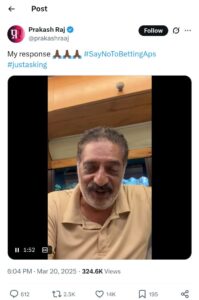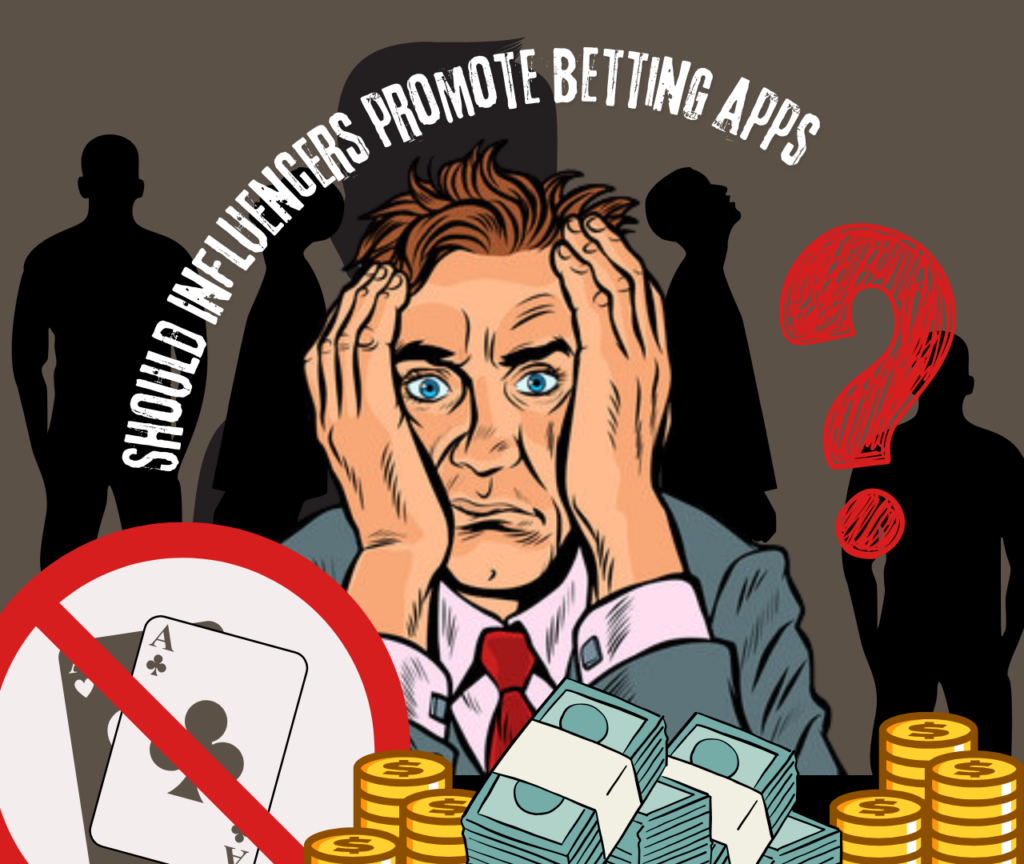On August 21, the Parliament passed The Promotion and Regulation of Online Gaming Bill 2025, aimed at curbing the rising online money games that have led vulnerable people into severe financial losses, money laundering and financial fraud. Amidst protests by the opposition, the bill was passed by voice vote following remarks by Ashwini Vaishnaw, Minister of Electronics and Information Technology.
With the introduction of this Act, real-money gaming has been completely banned, drawing attention to the influencers and Hollywood celebrities who have long promoted these betting apps. The malady that led to several families going bankrupt, people committing suicide and falling into the depression trap had made online gaming firms laugh their way to the banks.

In light of the aforementioned Act, The Voices examines how influencers have promoted these apps and the repercussions they have faced. The issue holds even more importance in the wake of the recent Supreme Court of India’s judgment on August 25, which observes that social media influencers have monetised free speech and have sought regulation to protect vulnerable masses, especially the youth, from being misled.
Telangana – A Role Model For Country
Telangana was the first state in the country with an explicit ban on all forms of real-money gaming, even those that involve skill, via its amendment to the Telangana Gaming Act 2017. The Telangana Gaming (Amendment) Act, 2017, has taken active measures to prohibit online gaming, including games that have a serious impact on the financial status and well-being of the people, with provisions for punishment, including imprisonment and fines. The Ministry of Information & Broadcasting (MIB) has also issued advisories on August 25, 2023, warning celebrities not to promote betting apps, especially those from offshore or unregulated jurisdictions.
Telangana Acts Tough
In March 2025, Cyberabad Metropolitan Police in Telangana booked 25 film actors and social media influencers for allegedly endorsing illegal betting, gambling and casino platforms. The FIR named high-profile people like Vijay Deverakonda, Rana Daggubati, Prakash Raj and others. Following the news reports, Daggubati and Raj issued public statements stating that they were no longer associated with the apps. Vijay Deverakonda clarified he had only promoted platforms offering skill-based games, which are legal in many states.
 Prakash Raj posted a video on X (formerly Twitter) clarifying that he shot the ad for the betting app in 2016 and refused to renew the contract after it ended. Taking to the X to clarify his stance, Prakash Raj stated that he hasn’t created any advertisements promoting online gambling since then.
Prakash Raj posted a video on X (formerly Twitter) clarifying that he shot the ad for the betting app in 2016 and refused to renew the contract after it ended. Taking to the X to clarify his stance, Prakash Raj stated that he hasn’t created any advertisements promoting online gambling since then.
He stated that after a few months, he concluded that while it (promoting online betting apps) might be legal, it was not right. It was a one-year contract, and when the company sought to renew it, Prakash Raj claimed to have declined.
Why do influencers endorse these platforms despite legal grey zones and social backlash?

Talking to The Voices over WhatsApp, Tech YouTuber Ashkar Techy explained that money was the main reason behind the promotion. Ashkar Techy, who has over 300,000 subscribers, revealed that a popular online gaming portal offered him Rs 8 lakhs if he added a promotion to his video. He admitted, “The worst part was that they have a demo app that always shows ‘You have won 50000’ even when the user has not won a single rupee,” he said. Akshar never took up the offer, as he felt that in times when influencers have a significant impact on the choices of youth, it becomes a moral responsibility for popular people to refrain from promoting things that are harmful to others.
Akshar quotes a study by a Youth Outreach Worker with YMCA (Windsor & Essex County) that assessed the impact of influencers on young people. Youth were asked if seeing ads on social media like YouTube, TikTok, Instagram, Snapchat, and Twitch influenced them to try a product or brand recommended, 63 per cent agreed that they did feel influenced.
Victim Shares His Pain
People who see celebrities as role models often end up using the product they endorse. In this case, betting apps have led to many people losing money. Rohit Sahni, 21, a student from the University of Delhi, while speaking to The Voices, revealed that he lost between Rs 50,000 and Rs 60,000 on a popular betting app. He slipped into depression and became disoriented. The constant ads for betting apps led him to try one, and he got addicted to it. It took him 6 months and huge financial losses to overcome the addiction.
Sports-related Gaming Apps Vs Betting Apps

According to the Indian Journal of Integrated Research in Law, a bi-monthly open-access online journal, while gambling and betting are largely prohibited under Indian law, online betting itself was not explicitly illegal till the passing of the recent bill. The legality of such platforms depended on factors such as geographic jurisdiction, age restrictions, and whether the game is considered a game of skill or chance. This had created a grey area. However, the introduction of the Promotion and Regulation of Online Gaming 2025 has clarified the grey area, making real-money gaming illegal.
Jamshed Sheikh, 19, a BA student at the University of Delhi from Inderlok, Delhi, said that he found betting apps appealing because of the chance to win big. The thought that there might be fewer participants, and therefore better odds, drew him in.
Copy Editor: Akruti Rao Kandikonda

